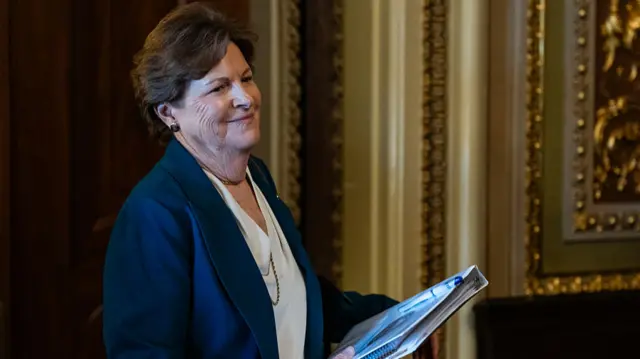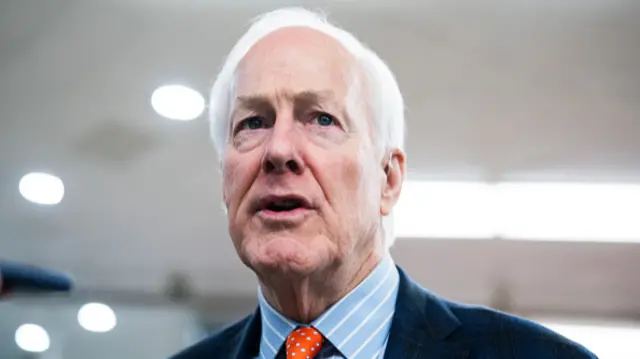Who are the Democrats that sided with the Republicans?published at 04:03 GMT
 Ana Faguy
Ana Faguy
Reporting from Washington DC
Seven Democratic senators and one independent who generally votes with the party sided with Senate Republicans to get this deal through. They are:
- Nevada's Catherine Cortez Masto
- Illinois's Dick Durbin
- Pennsylvania's John Fetterman
- New Hampshire's Maggie Hassan
- Virginia's Tim Kaine
- Maine's Angus King (independent)
- Nevada's Jacky Rosen
- New Hampshire's Jeanne Shaheen
Only one Republican voted against the deal: Kentucky's Rand Paul. He has a history of breaking from his party on spending issues, and said he was voting against the measure because it included increases to the national debt.




